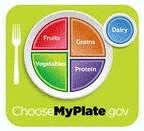Nutrition and Health Sciences, Department of

Department of Nutrition and Health Sciences: Dissertations, Theses, and Student Research
Date of this Version
5-2010
Document Type
Thesis
Abstract
The objectives of this study were to determine the nutrition knowledge of students in grades K-6 (n = 62,324) participating in Supplemental Nutrition Assistance Program-Education (SNAP-Ed), to determine if the nutrition information provided by the program impacts youth nutrition knowledge and behaviors, and to determine if there is a difference in the impact of the school enrichment program versus the non-school enrichment program. Without proper nutrition and physical activity the tendency for children to gain weight increases; therefore, increasing the likelihood of becoming obese. In the past 20 years, the prevalence of obesity has doubled. Eating behaviors and the amount of physical activity a child receives are influenced by many factors, such as family, community organizations, health care providers, businesses, media, and schools. Because over 95 percent of youth are enrolled in schools, they play a very important role and can make a great impact on the obesity epidemic by helping students learn about healthy eating and physical activity. In this study, there are two methods of program delivery. First, the school enrichment program utilizes kits, which contain well-organized learning activities that the classroom teachers use to teach nutrition to their students. The non-kit school enrichment program utilizes NEP staff for all nutrition education. Topics taught include USDA’s MyPyramid, individual food groups, hand washing, and healthy snacks. The NEP staff uses the Show-Me Nutrition curriculum that was developed by the University of Missouri SNAP-Ed and EFNEP programs. Supplemental materials from Professor Popcorn developed by the Purdue University EFNEP program were also used. Data were collected using a pre-test, post-test format, which were given at each lesson. Chi-Square Tests of Independence were used to evaluate the aggregate youth data. Results show that both the school enrichment kit and non-kit school enrichment programs increased nutrition knowledge and positively changed behaviors of participants. Overall, this study shows that nutrition education in schools through programs, such as SNAP-Ed, is effective at increasing the nutrition knowledge and changing some behaviors of school-aged children.


Comments
A thesis Presented to the Faculty of The Graduate College at the University of Nebraska In Partial Fulfillment of Requirements For the Degree of Master of Science Major: Nutrition and Health Sciences Under the Supervision of Professor Wanda M. Koszewski Lincoln, Nebraska May, 2010 Copyright 2010 Ashley M. Keller